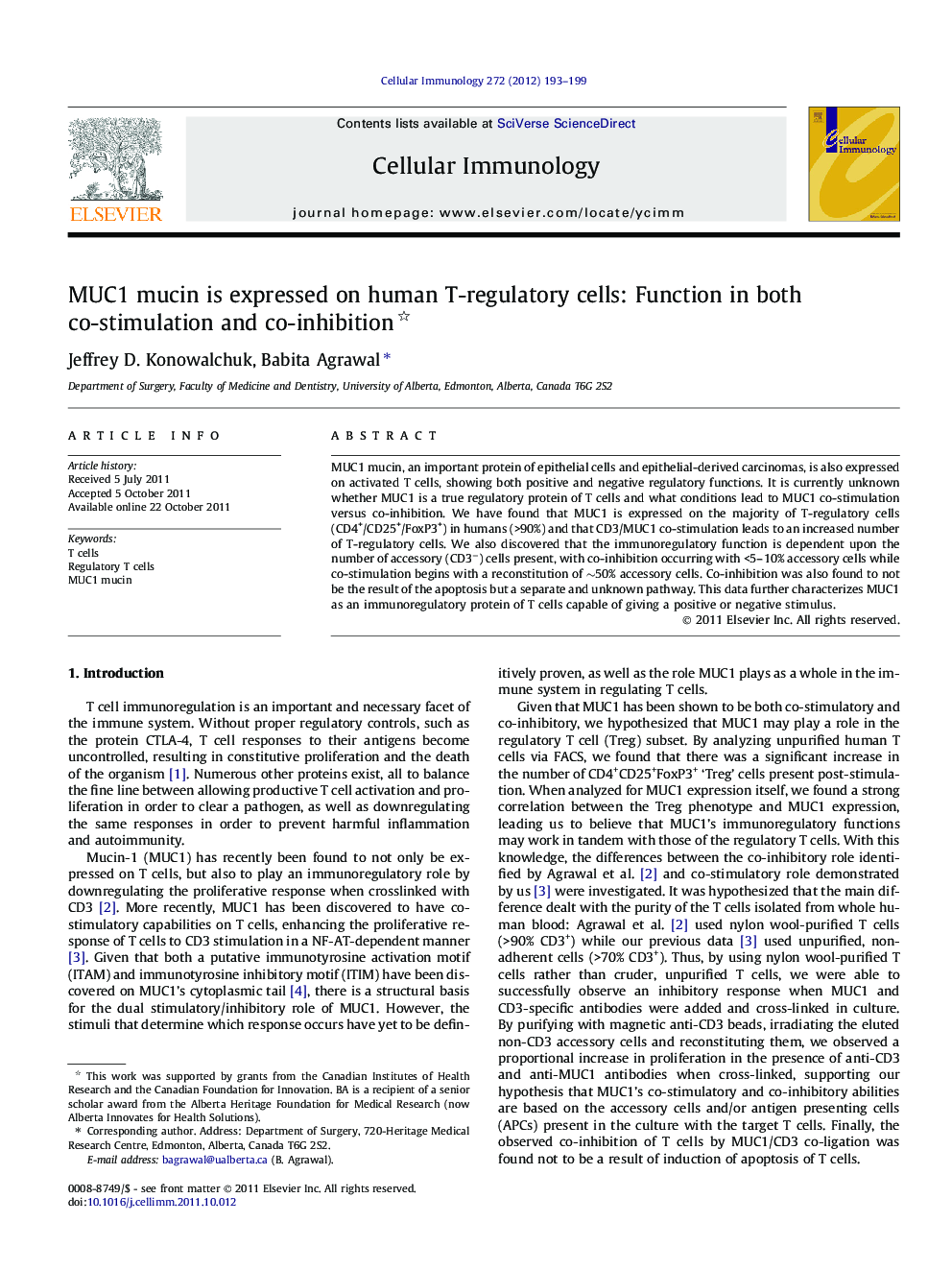| Article ID | Journal | Published Year | Pages | File Type |
|---|---|---|---|---|
| 2167389 | Cellular Immunology | 2012 | 7 Pages |
MUC1 mucin, an important protein of epithelial cells and epithelial-derived carcinomas, is also expressed on activated T cells, showing both positive and negative regulatory functions. It is currently unknown whether MUC1 is a true regulatory protein of T cells and what conditions lead to MUC1 co-stimulation versus co-inhibition. We have found that MUC1 is expressed on the majority of T-regulatory cells (CD4+/CD25+/FoxP3+) in humans (>90%) and that CD3/MUC1 co-stimulation leads to an increased number of T-regulatory cells. We also discovered that the immunoregulatory function is dependent upon the number of accessory (CD3−) cells present, with co-inhibition occurring with <5–10% accessory cells while co-stimulation begins with a reconstitution of ∼50% accessory cells. Co-inhibition was also found to not be the result of the apoptosis but a separate and unknown pathway. This data further characterizes MUC1 as an immunoregulatory protein of T cells capable of giving a positive or negative stimulus.
► MUC1 is expressed on the majority of T-regulatory cells in humans. ► CD3/MUC1 co-stimulation leads to an increased number of T-regulatory cells. ► The immunoregulatory function of MUC1 is dependent upon the number of accessory cells. ► MUC1 is capable of giving a positive or negative stimulus.
